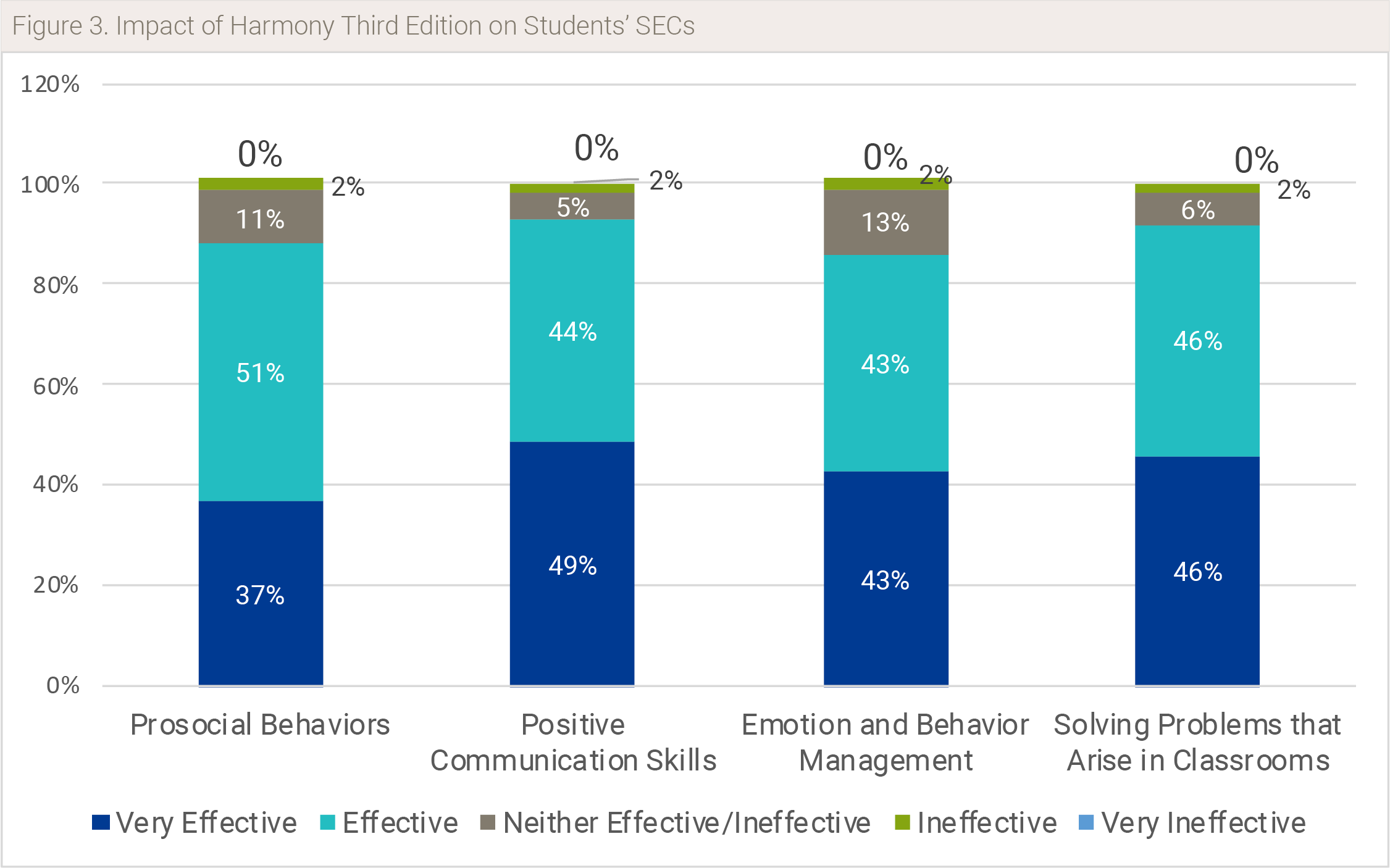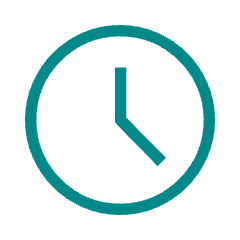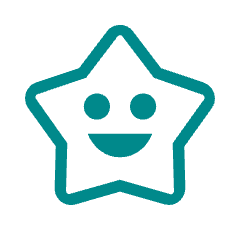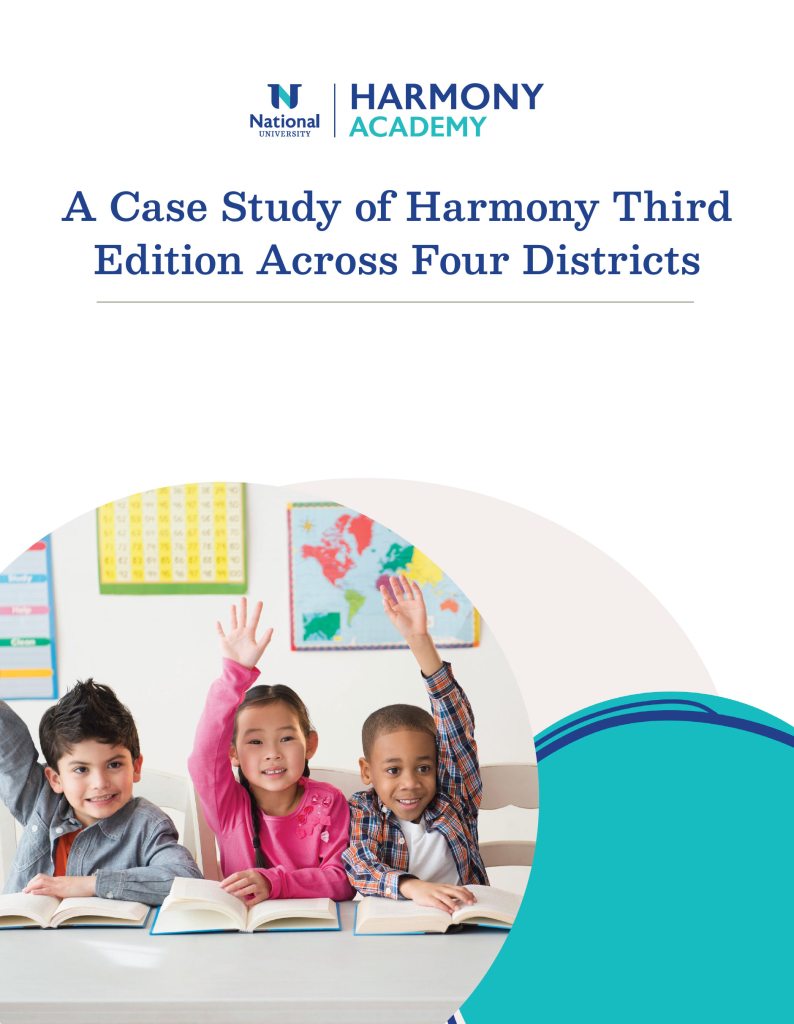Harmony, Healthy Learning, and Relationship Skills
Research
An Evidence-Based Approach
Harmony was initially developed at Arizona State University in 2008 and it transitioned to National University in 2014. Since its inception, researcher-conducted, rigorous evaluations of Harmony components have provided sufficient evidence for Tier 3: Promising Evidence under ESSA. Today, Harmony supports 57,000 schools and organizations, impacting more than 26 million students in 50 states and 88 countries.
Latest Research
U.S. Department of Education: EIR Grant
As a recipient of the prestigious Education Innovation and Research (EIR) grant from the U.S. Department of Education, Harmony Academy at National University is developing an approach, the Harmony Social, Personal, and Academic Integration, an innovative model that embeds the Harmony Curriculum more intentionally into academic instruction, particularly in schools with historically underrepresented students.
Over the next five years, Harmony will work with the New York City Public Schools and San Antonio Independent School District to integrate this model into academics, potentially impacting more than 8,000 students in these major city school districts.
The American Institutes for Research (AIR) serves as the independent evaluator to study the impact of this program model
Educator Perceived Impact of Harmony on Student Relationship Skills

As part of the refresh of the Harmony Curriculum (Third Edition), Harmony staff partnered with four districts in 2022 — two midsize districts in the Midwest, one midsize district in the South, and one midsize district in the Southwest — to receive early access to the refreshed Everyday Practices (Meet Up and Buddy Up) and to Units 3 and 4 of the Units, Lessons, and Activities. Educators received two district-specific trainings to pilot Harmony Third Edition. Most participating educators across the four districts offered feedback on their experience through surveys (n=61), focus groups (n=51), and classroom observations (n=34).
Key Recommendations for
Educators and Administrators from the Case Studies

Find time to embed Harmony principles within academics.

Prioritize students’ personal, social, and academic development and well-being.

Become familiar with the program.

Make certain to implement the core pieces of Meet Up.
Learn more about implementing the Harmony Curriculum.
Proven Benefits to Academic Performance and Peer Relationships
Empirical research on Harmony and related programs and practices demonstrates that the relationship-building activities of Harmony benefit students in multiple ways. In multiple quasi-experimental studies, researchers found that students who participated in Harmony program components, compared to students who did not, experienced positive outcomes in their peer relationships, academic achievements, prosocial behavior, connection to school, feeling more welcome, and personal development1234.
Harmony was initially developed to focus on building strong and harmonious relationships among students who may not typically interact with each other in classrooms5. The intention was to explicitly teach the relationship skills students need to engage with themselves and others.6The initial theoretical and empirical grounding as well as recent research within the healthy learning field are incorporated in the refresh of the Harmony Curriculum (Third Edition).7

Improved writing and math performance

Had significantly more diverse friends

Were more likely to engage in play with a wider array of peers

Decreased perceived aggression observed by teachers

Liked school more

Felt a greater connection and identification with their class

Felt a greater sense of inclusion
- Hanish, L. D., Martin, C. L., Miller, C. F., Fabes, R. A., DeLay, D., Updegraff, K. A. (2016). Social harmony in schools: A framework for understanding peer experiences and their effects. In K. R. Wentzel (Ed.) Handbook of Social Influences in School Context:Social-Emotional, Motivational, and Cognitive Outcomes. Routledge. ↩︎
- Miller, C. F., Kochel, K. P., Wheeler, L. A., Updegraff, K. A., Fabes, R. A., Martin, C. L., & Hanish, L. D. (2017). The efficacy of a relationship building intervention in 5th grade. Journal of school psychology, 61, 75-88 ↩︎
- Hanish, L. D., Martin, C. L., Miller, C. F., Fabes, R. A., DeLay, D., Updegraff, K. A. (2016). Social harmony in schools: A framework for understanding peer experiences and their effects. In K. R. Wentzel (Ed.) Handbook of Social Influences in School Context:Social-Emotional, Motivational, and Cognitive Outcomes. Routledge. ↩︎
- Hanish, L. D., Xiao, S. X., Malouf, L. M., Martin, C. L., Goble, P., Fabes, R. A., DeLay, D., & Bryce, C. (2022). The benefits of buddies: Strategically pairing preschoolers with other-gender classmates promotes positive peer interactions. Early Education and Development. Advance online publication. ↩︎
- Xiao SX, Ren H, Hanish LD, Miller CF, Martin CL and Fabes RA (2023) Meet Up Buddy Up: effective strategies to promote 4th grade students’ intergroup prosocial behavior. Front. Dev. Psychol. 1:1177566. ↩︎
- Martin, C. L., Fabes, R. A., Hanish, L. D., Gaertner, B., Miller, C. F., Foster, S., & Updegraff, K. A. (2017). Using an intergroup contact approach to improve gender relationships: A case study of a classroom-based intervention. In A. Rutland, D. Nesdale, & C. S. Brown (Eds.), The Wiley Handbook of Group Processes in Children and Adolescents (pp. 437-454). John Wiley & Sons. ↩︎
- Yoder, N. (2022). Understanding the Research and Teacher Experience Behind the Refresh of Harmony Third Edition. National University. ↩︎
